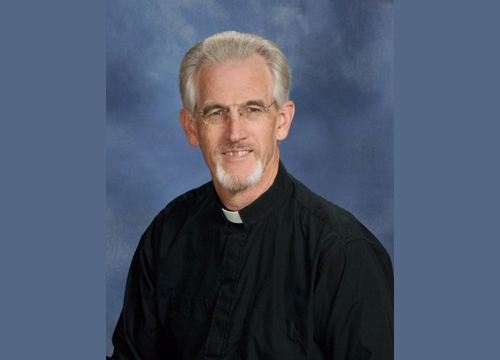Twenty-Second Sunday Ordinary Time, Cycle B Dt 4:1-2, 6-8; Ps 15:2-5; Jas 1:17-18, 21b-22, 27; Mk 7: 1-8, 14-15, 21-23
We’ve just finished the five-week discourse on the Bread of Life in John’s Gospel. In it we heard how we receive Jesus in the Eucharist, become what we receive, and, as a result of this transformation, are sent so others may experience Christ through us. Today we are presented with ideas of how to put this into practice.
We are challenged to be true to the Word that has been given to us, to be authentic, teaching the law and practicing it as it was presented. Deuteronomy tells us: “You shall not add to what I command you nor subtract from it” (4:2) Deuteronomy also tells us that the nation that “observes them carefully” (4:6) gives evidence of their wisdom and intelligence.
In the Gospel, Jesus calls the Pharisees to task for not following God’s directive. They have taken human precepts and made them part of the law that the people must follow. Jesus goes even further, accusing them of disregarding God’s commandments and clinging to human traditions. They have laid heavy burdens on the people by adding these to the law in direct opposition to what God has commanded.
The psalm speaks to us about the law — specifically about justice. Verse one, which is not part of our response, asks the questions, “Lord, who may abide in your tent?” and “Who may dwell on your holy mountain?”
It answers these questions in our psalm response. By walking blamelessly and doing justice, we will abide with God and dwell in his presence. While none of us can be considered totally blameless because we’re not perfect, we can still try to be as good as possible and seek forgiveness for the times we fail.
Acting with justice is another matter. We may have different ideas about justice. One event can be defined as justice for one group and an injustice by another.
If we are looking to define justice, we look to the standard we are challenged with throughout the Old Testament and the standard Jesus used. The law given to Moses preaches justice, and part of this justice is taking care of the vulnerable ones in society.
Throughout Deuteronomy – in fact, throughout all of the Old Testament – we hear how the law calls for fair treatment of widows, orphans, strangers or aliens and travelers. In his ministry, Jesus was concerned with those discarded by society — tax collectors, widows, lepers and others.
We must hear this Word of God, and let it reside within us. We’re also told we can’t be people who just hear, think and talk about justice.
In the second reading, James charges us to “be doers of the Word and not hearers only” (22). He also tells us that without works, faith is dead and that our actions demonstrate our faith (2:17- 18).
If we truly hear the Word of God and have faith, we act on it and do the things of God. If we are hearers and doers of the Word, our faith not only resides in our hearts, but it flows from the heart in our actions. It is also from the heart that justice and truth flow.
Are we hearers and doers of God’s Word? Do our hearts direct us in following God’s law, putting it into action and bringing about justice? Do we stand firm, unshaken in our faith?
Psalm 15 tells us, “Whoever acts like this (with love and justice) will never be shaken.”
Deacon Christopher Colville serves at Church of the Redeemer, Mechanicsville.

